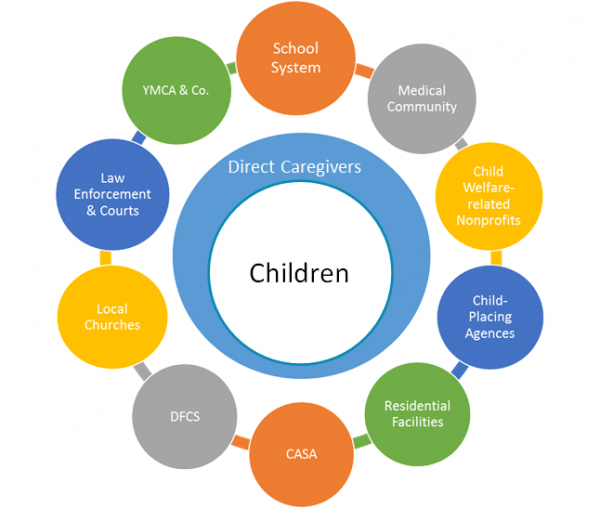Trust-Based Relational Intervention
Trust-Based Relational Intervention® (TBRI®) is an attachment-based, trauma-informed, whole-child approach to meeting the complex needs of children and youth who have experienced early adversity, toxic stress and/or relational trauma. TBRI was developed at TCU’s Karyn Purvis Institute of Child Development by Dr. Karyn Purvis and Dr. David Cross to address the effects of early adversity and relational trauma through three synergistic principles: Connecting, Empowering, and Correcting.
The Connecting Principle is designed to cultivate healthy and healing relationships through Mindful Awareness and Engagement Strategies. The Empowering Principle is designed to support physical needs and regulation through Ecological Strategies and Physiological Strategies. The Correcting Principle is designed to address fear-based behaviors through Proactive and Responsive Strategies.
Although TBRI was originally created for adoptive and foster families, over the years TBRI has been implemented in a variety of settings including child welfare, schools, residential facilities, juvenile justice settings, hospitals, mental health agencies, law enforcement, courts, and more. There are TBRI Practitioners in all 50 states and TBRI is also being implemented internationally. The KPICD has partners operating in over 10 states and 10 countries and system-level implementation projects in over 20 states and 20 countries.
TBRI Practitioners are individuals who have successfully completed TBRI Practitioner Training, a comprehensive two-part training hosted by the KPICD. TBRI Practitioner Training includes 10-weeks of online coursework and a one-week intensive training. Completing this training gives TBRI Practitioners access to the TBRI Caregiver Package so that they can train others in their organization or community in TBRI.
The TBRI Caregiver Training is listed as having ‘promising’ research evidence in Parent Training Programs with high relevance for child welfare in the California Evidence-Based Clearing house, and listed as a ‘promising practice’ in the topic area of Mental Health Prevention and Treatment in the Title IV-E Prevention Services Clearinghouse.
The TGCC is an effort to train professional care providers, parents, and community members who interact with children in the TBRI® model and to assist organizations involved in child welfare in the implementation of trauma-informed best practices. The resulting network of trauma-informed partner agencies and individuals will dramatically increase the quality of life and prospects of our children who have experienced trauma.
The TGCC effort is grounded in an evidence-based intervention (i.e. TBRI®) and informed by collective impact, whereby all community sectors in contact with children are targeted. Although writing trauma-informed policies are valuable, they are only helpful when coupled with and carried out through action. Furthermore, they are most effective when consistently reinforced throughout the child welfare system. State-wide, cross-sector, trauma-informed care is the culture we desire and TBRI® provides the research, information and action steps needed to get there, as it addresses all major issues linked with complex developmental trauma in a holistic manner and is applicable across diverse cultures and continents. It is not a clinical model, but a care-giving model, so any nurturing caregiver can be trained. This makes TBRI cost-effective, as caregivers are equipped with tangible strategies and tools that provide healing from the impacts of trauma.

Connect with Restoration Rome and learn how you can be a part of restoring hope to broken families and rebuilding the future for children in the foster care system.
HOW DO YOU WANT TO HELP?
